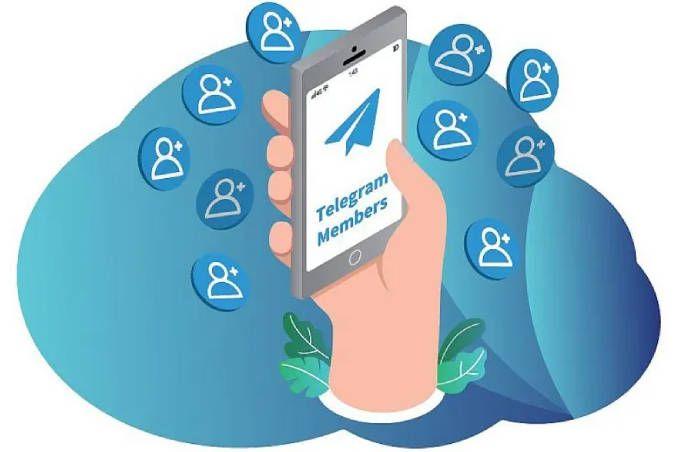11 Effective Ways of Reducing Agent Effort in Customer Service

LIKE.TG 成立于2020年,总部位于马来西亚,是首家汇集全球互联网产品,提供一站式软件产品解决方案的综合性品牌。唯一官方网站:www.like.tg
Equipping your support agents with the resources they require to succeed is the first step in providing a fantastic client experience. Agent effort is frequently over stretched under the pressure to uphold crucial customer service criteria.
Consider this: how can you design low-effort interactions for clients if your agents find it challenging and time-consuming to find answers to customer questions? The easier the experience for your agents, the happier they will be, and happy clients come from happy employees.
Let’s explore some practical strategies for reducing agent effort in this blog.
Agent effort in customer service
Agent effort is the amount of work a customer service agent must put in to please a client in accordance with your company’s requirements.
This encompasses being prompt in your responses to customers, resolving customer issues quickly and efficiently, and providing helpful and friendly customer service. It also involves staying up to date on company procedures and policy.
Why is reducing agent effort necessary?
Reducing agent effort in customer service is essential for businesses to remain competitive and improve customer satisfaction.
Reducing agent effort can:
- Increase efficiency.
- Reduce costs by eliminating the need for additional staff.
- Build better relationships with customers by allowing agents to focus on more meaningful interactions.
- Produce a better company culture.
- Improve morale of employees.
Techniques to lower agent effort in customer service
Your agents are an integral part of the company, so making their jobs simpler will benefit everyone. Try the following actions to let your agents know that you value their efforts and are paying attention on them.
1. Ensure easy access to information and resources
Customers want timely, precise responses to their inquiries. For support representatives, this isn’t always simple.
When information is hard to find, agents waste a lot of time looking for the answers, consulting their neighbors, or holding out for a supervisor to aid them.
This slow response will lower your customer satisfaction ratings and result in an increased average handle time (AHT) and longer wait times. To improve how agents access information:
- Remove document duplication.
- Reduce large amounts of text to chunks that are simple and straightforward.
- Create an internal knowledge base as a central repository for all company information and product troubleshooting:
- Make it easy to search for keywords.
- Have a simple process for adding notes and new articles.
- Provide templates for articles to ensure uniformity and easy skimming.
- Implement knowledge base software to make all of this much easier.
2. Prioritize communication with agents
No matter the company or business, change is the one constant in our fast-paced world. Therefore, it’s critical that agents are made aware of any significant product modifications, price adjustments, or new business rules.
This makes sure that if your company evolves, your support agents will transition smoothly, and clients will continue to enjoy the same high standard of customer care.
3. Provide effective training to enhance agent efficiency
Agents need to have a clear grasp of their role and the services they offer to clients. When agents start working, they will make a lot of mistakes if they discover they are uncertain about a wide range of topics and situations even after training.
Your training should provide agents with the know-how and abilities to do their duties, including where to find crucial information and who to ask about specific subjects.
By doing this, agents won’t feel lost when they begin their jobs and will be sure to know where to turn for help if they do.
4. Elevate your agents to boost
One of the ways to elevate your team’s performance is by creating a friendly workplace where everyone is respected and acknowledged.
This will strengthen their loyalty to your business and provide them the motivation they need to work at the top of their game.
Teamwork is another crucial component of the system. Agents’ distinct abilities start to converge when they collaborate and engage in open dialogs, creating a high-performing team.
5. Offer comprehensive self-help tools to the customers
Support agents in most organizations are extremely busy. The work can occasionally get to them if the workload is heavy. A comprehensive knowledge base as a self-service option can empower customers to find the information they require to solve their own problems independently without requiring agent assistance.
By offering a knowledge base that is easy to find and use, the number of tickets created decreases, thus reducing the workload of agents, allowing them to focus more on critical tasks.
6. Have clear policies and procedures
Agent effort is significantly impacted by business restrictions on their ability to provide transparent client experiences.
Processes can be challenging for agents to follow due to complexity, abbreviations, industry jargon, and structure.
By dividing lengthy procedures into manageable parts and organizing them logically and visually, you may make your processes simpler to follow. Use plain language for your policies and provide example scenarios for applying them.
7. Encourage a unified interface
This means that all customer service agents should be using the same interface for all customer service activities.
Agents having to switch among several different apps in order to answer one customer inquiry is a pain. Productivity will undoubtedly suffer, and eventually, so will customer satisfaction.
Having a unified interface helps to reduce the amount of time spent learning new systems and navigating different interfaces.
Additionally, a unified interface helps to ensure that customer service agents are able to access the same information quickly and easily to provide fast, accurate customer service.
This reduces the amount of time spent searching for information, which in turn reduces the amount of effort required from customer support agents.
8. Automate reminders, alerts, and notifications
To complete repetitive, manual operations, create customized workflows with automation to decrease manual labor and boost agent efficiency.
Clients can receive automatic notifications when their issues have been received and when the status of their tickets changes. This keeps agents from having to personally notify clients of progress.
Before the resolution deadline, assigned agents can get an alert as a reminder. This way, agents don’t have to worry about forgetting tasks, reducing their stress.
9. Use SLA escalations to improve agent productivity
Automatically set response and resolution deadlines using service-level agreements (SLAs). An SLA defines how quickly your support team should respond to and resolve a problem.
If a ticket is not resolved on time, use support software to escalate it automatically to a team lead. Both the agent assigned and the team lead get alerts.
The team lead can then notify the customer of a delay and find out why the ticket is still open. If the original agent is unable to solve the issue, the team lead can reassign it to an agent with better expertise or a lighter workload to ensure customer satisfaction.
10. Measure and monitor agent effort
What you don’t measure, you won’t be able to impact. Leverage modern data technologies to get more precise insight into agents’ performance and where they can improve. Help desk software can offer data tracking and measurement mechanisms such as worklog reports, agent performance reports, and customer satisfaction reports.
You can also regularly check in with your agents to see if they’re having issues not evidenced by data. Demonstrating your concern will go a long way toward enhancing morale and, consequently, performance.
11. Recognize and reward good performance
A little gratitude goes a long way. An employee will go above and beyond to assist the company if they feel valued and recognized. A worker will begin to hate their job and eventually lose motivation if they are continually given extra work without any recognition.
Reward your support agents for attaining their immediate objectives. With these short-term rewards, agents believe their goals are attainable, which boosts their motivation to work for the longer-term objectives of the company.
Conclusion
Reducing agent effort in customer service is critical to providing outstanding customer experiences. By implementing the techniques described in this blog, you can minimize agents’ workload and stress, which can improve the overall efficiency and effectiveness of your customer service operations.
Get the best help desk software for boosting customer support efficiency and agent success with LIKE.TG. Sign up for a free trial to see what it can do for your team. If you have any questions, the LIKE.TG support team is always available to help.
To get a better understanding of how LIKE.TG can be tailored to your business’s needs, please contact us to set up a live demo.

LIKE.TG 专注全球社交流量推广,致力于为全球出海企业提供有关的私域营销获客、国际电商、全球客服、金融支持等最新资讯和实用工具。免费领取【WhatsApp、LINE、Telegram、Twitter、ZALO】等云控系统试用;点击【联系客服】 ,或关注【LIKE.TG出海指南频道】、【LIKE.TG生态链-全球资源互联社区】了解更多最新资讯
本文由LIKE.TG编辑部转载自互联网并编辑,如有侵权影响,请联系官方客服,将为您妥善处理。
This article is republished from public internet and edited by the LIKE.TG editorial department. If there is any infringement, please contact our official customer service for proper handling.


















